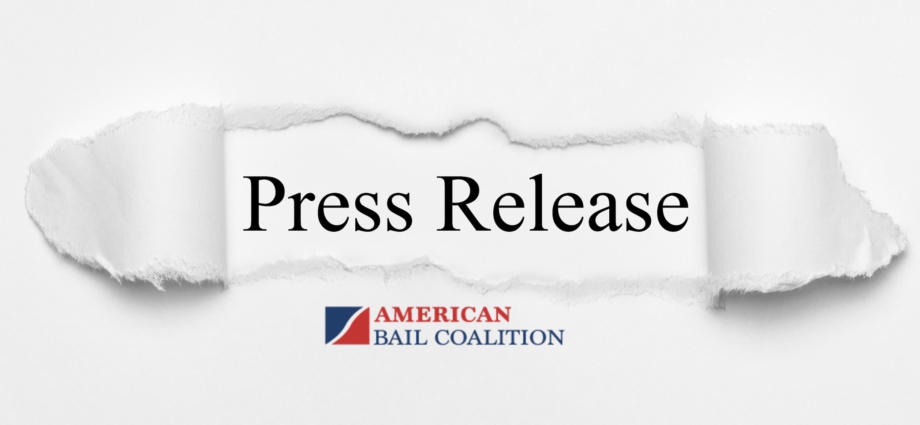FOR IMMEDIATE RELEASE:
Lakewood, CO (October 14, 2020) – The Utah Judicial Council's recent decision to implement new bail guidelines for the state is facing criticism that it is both unconstitutional and compromises public safety. The policy-making body of the court system voted in August to create a new statewide bail schedule and also to continue use of a widely-discredited risk assessment tool. The new rules took effect on October 1.
A key feature of the new rules, the revamped bail schedule dictates a $5,000 maximum felony bond for any offense, no matter how serious the charge. In addition, it is based solely on a defendant's income level, while ignoring other personal financial factors, including cash assets.
Ramifications of the Judicial Council's revised bail rules are already manifesting themselves in a number of cases in which individuals have been charged with particularly horrific crimes. For example, in Wasatch County, Dennis Early Skiby, a 60-year-old man, was arrested for the rape of an 11-year-old girl during a sleepover and subsequently released on his own recognizance.
Meanwhile, in David County, 49-year-old Mark Alma Slater was caught in a police sting, trying to lure someone he believed to be a 13-year-old girl to have sex with him. Following his arrest, he was also released on his own recognizance, rather than being held in custody as a danger to the community.
Besides being a threat to public safety, critics of the new bail rules say that they are illegal and violate the constitutional right to bail. They also cite the inherent flaws of risk assessment tools that were put in place as part of the Judicial Council's recent actions.
The American Bail Coalition, a trade organization of the bail industry, along with other opponents of the new bail guidelines, cites multiple independent university studies that have concluded the mandated use of risk assessment discriminates against minorities. It also charges that the new rules violate due process and unfairly focuses on annual income as the principle criterion for whether or not a person is eligible for a bond.
"The new rules are fatally flawed and unconstitutional, while also posing a danger to public safety," said Jeff Clayton, Executive Director of the American Bail Coalition. "We have formally requested that Utah's state leaders demand the Judicial Council to withdraw the new bond guidelines and to stop using the Arnold Foundation risk assessment tool as part of the decision-making process throughout the state."
Risk assessments were once regarded as the singular answer to bail reform, but have since fallen into disrepute and abandoned by its former champions, including the Pretrial Justice Institute. Earlier this year it declared that the tools “can no longer be a part of our solution for building equitable pretrial justice systems."
About the American Bail Coalition:
The American Bail Coalition is dedicated protecting the Constitutional right to bail and the promotion, protection and advancement of the surety bail profession in the United States. Comprised of the nation’s largest surety insurance companies, ABC works with local communities, law enforcement, legislators and other criminal justice stakeholders to utilizes its expertise and knowledge of the surety bail industry to develop more effective and efficient criminal justice solutions.
Media Inquiries:
MediaVista Public Relations:
Elliott Chang
(323) 938-5879
Cara Downs
(323) 316-5228



Facebook Comments